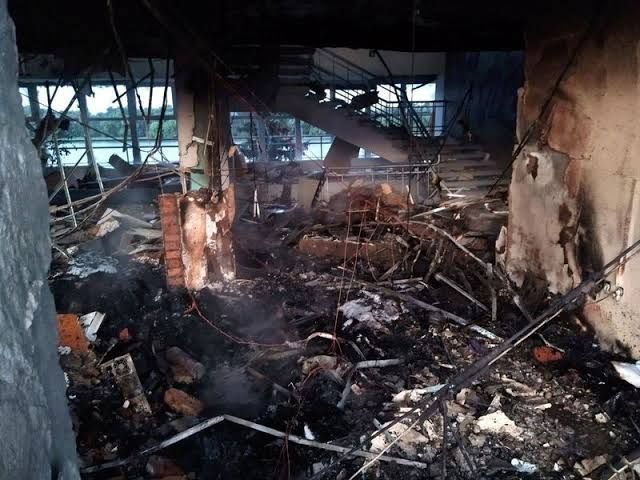Rising Global Food Insecurity: Russia's Escalating Attacks on Ukraine's Grain Ports
In the early hours of August 2, Russia launched a significant attack on Ukraine's grain ports, including the inland port of Izmail, located across the Danube River from Romania. These strikes mark an escalation in Russia's strategy of imposing a blockade on Ukrainian exports and have

In the early hours of August 2, Russia launched a significant attack on Ukraine's grain ports, including the inland port of Izmail, located across the Danube River from Romania. These strikes mark an escalation in Russia's strategy of imposing a blockade on Ukrainian exports and have sent global food prices soaring due to fears over the disruption of grain supplies.
According to Ukraine's defense ministry, a grain silo in Izmail was damaged in the attack. Despite the absence of casualties, these strikes have significant implications for the world's food security, given that Ukraine is a major global grain supplier.
The damage was confirmed as "serious" by an industrial source, painting a troubling picture for the future of Ukraine's grain exports. Images released by Ukraine's prosecutor's office revealed damaged silos with wheat spilling out, demonstrating the extensive impact of the attacks.
Since Russia imposed its blockade on Ukraine's Black Sea ports in mid-July, Izmail has served as the primary alternative route for Ukrainian grain exports. The escalation of attacks on these grain ports has led to a rise in global wheat prices, sparking fears over potential food shortages.
For over two weeks, Russia has targeted Ukrainian agricultural infrastructure and port facilities. These actions follow Russia's refusal to extend an agreement that had lifted its wartime blockade of Ukrainian ports, a move aimed at securing better terms for Russia's own food and fertilizer exports.
As a result of these ongoing attacks, Ukraine's grain exports for July were reported to be down 40% from June. Such actions are not only damaging Ukraine's economy but also threatening the global food supply chain.
In a world already burdened by food insecurity, these attacks compound existing problems. The United Nations has warned of a potential food crisis and hunger in the world's poorest countries as a result of Russia's decision to abandon the deal brokered by the UN and Turkey.
Ukrainian officials claim that, since quitting the grain deal, Moscow has struck 26 port facilities and damaged 180,000 tonnes of grain in just nine days of strikes. The consequences of these actions are far-reaching, and as Russia's blockade continues to disrupt Ukraine's grain exports, the international community must brace itself for the potential impact on global food security.




